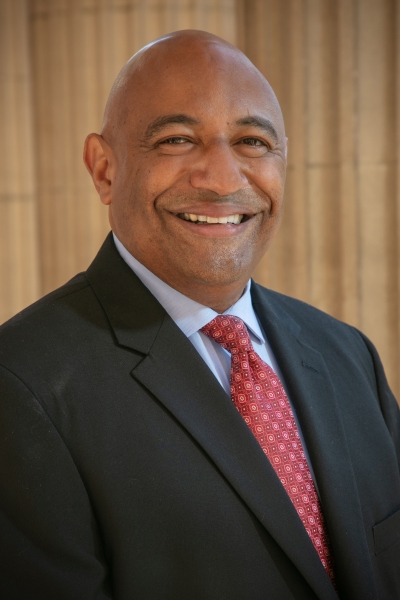Navigating race with emotional intelligence: seminar sheds light for Black History Month

Speaker Andy (Anderson) Parks. Photo courtesy of CWU
February 8, 2023
Emotional Intelligence (EQ) is defined by Milton Kuolt professor of business Anderson Parks as being aware of “who you are at your core, how your emotions are, what you’re feeling, and how those emotions impact others, and using that information to go out and build more authentic bonds and stronger relationships.”
The first week of Black History Month at CWU wrapped up with a talk called “Using Emotional Intelligence (EQ) To Navigate Race, Corporate America, and Higher Education,” presented by Parks.
During this presentation, part of the First Friday event series hosted by the Central Learning Academy, Parks shared his personal experiences with racism and explained how having EQ can help navigate race in our lives and workplaces.
Parks explained how he came to learn about EQ by working with a life coach after recovering from a cancer diagnosis.
“We went through a lot of exercises on self-awareness and self-management, which are two of the components of emotional intelligence,” Parks said. “Then later on, I started to work on bringing that work out into the public through the social side of EQ.”
According to Parks, there are four components of EQ. The first two fall under the category of self: self-awareness and self-mastery. While the second two fall under a social umbrella: social awareness and empathy.
“When you have an awareness of your biases, and you can connect those back to your core values, it helps you understand why you may get triggered by people that are different than you,” Parks said. “Having that understanding is the first step.”
According to Parks, triggers are unconscious and bringing them into the forefront of one’s mind can help people tune in to the reason for their reactions.
“When you have empathy with other people, you can then become compassionate for their experience and their story,” Parks said. “Through that compassion, you can start to move to a place of advocacy and or allyship. But without empathy and compassion, it’s difficult to do that.”
Parks explained that it is important to practice mindfulness or to have a contemplative practice in order to grow self-awareness and eventually, EQ skills.
“I really encourage all of my students and people that I work with to develop a contemplative or mindfulness practice,” Parks said.
There are many ways to get started, one of the most popular being meditation. Some resources he recommended looking into were: ‘Vipassana meditation,’ ‘The Association for the Contemplative Mind in Higher Education,’ the app ‘Mindspace,’ and even on YouTube.
It is important to develop your EQ if you are looking to be in a leadership position, as evidenced by Harvard Psychologist Daniel Goleman who Parks referenced in the presentation.
Parks said: “research has shown that 85% of performance effectiveness as a leader is due to emotional intelligence skills and behaviors. If you want to be in a position to lead others effectively, you also need emotional intelligence as part of your toolkit.”
Attendee Jessica Murillo-Rosales said the presentation “was raw, vulnerable and reflective. Andy is the type of presenter that builds up his setting beautifully to ensure everyone truly understands the intent of his presentation.”
Parks encouraged everyone to become curious about people whom they perceive as different. He explained that as a society, we tend to look at people who are different from us as being less human.
Parks asked everyone to embrace the diversity of humanity by becoming curious about those whom we view as “others.”
“I do believe that there is a lot of goodness at the core of who we are. All of us. It’s just getting past those visual or surface differences,” Parks said.“Once we can become curious and explore who we are at a deeper level, that’s when the true relationships start to develop … and then it’s easier to become empathetic and to develop compassion for others.”
Parks asked people not to wait to become involved, to instead start now and start simple.
“It could be as simple as smiling to someone who doesn’t appear to be accepted or doesn’t appear to fit in,” Parks said. “This has been a lifelong journey for me, and it’s easy to get frustrated, it’s easy to give up … but think about what legacy you want to leave behind … what is it that you want to be remembered for?”

